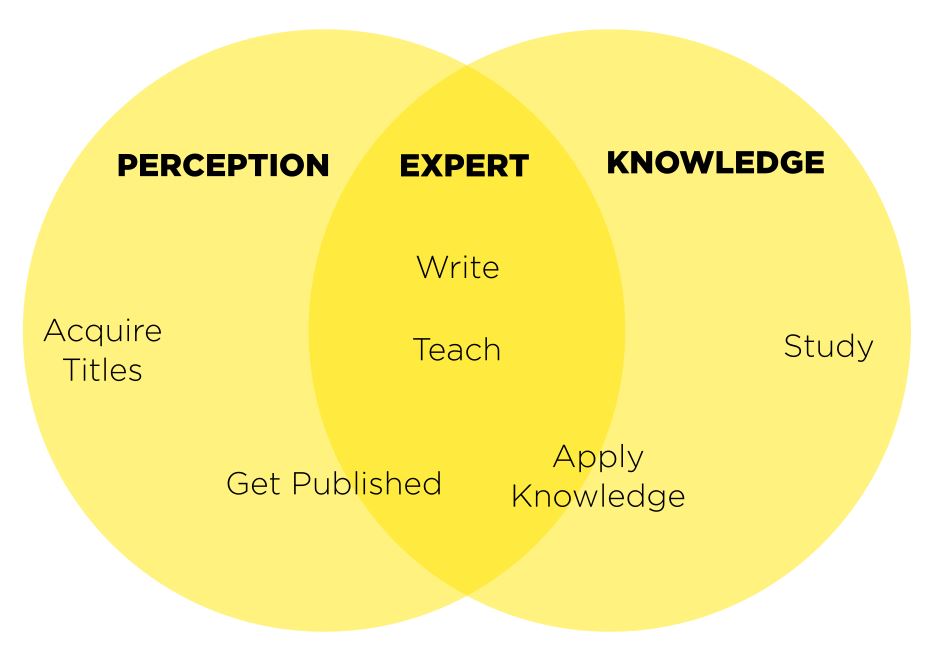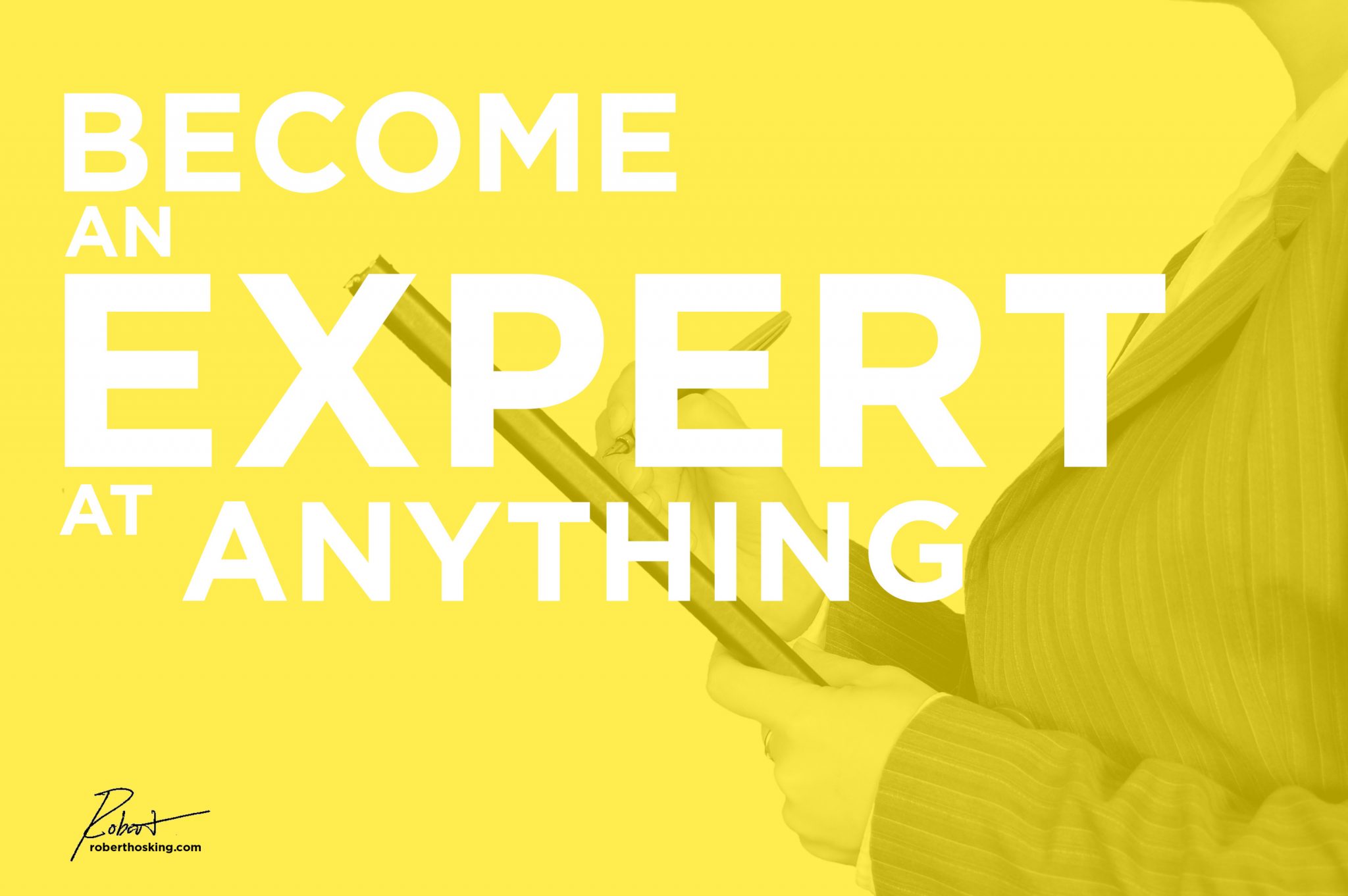So you’re ready to take your interests/hobbies/skills to the next level and become an expert? Or maybe you’ve identified some new business skills that would serve you well professionally?
Either way, I firmly believe that everyone is an expert in something. Whether your expertise lies in front-end development, the mating rituals of sea monkeys or the ability to fry a perfect flapjack, seeking recognition for your expertise is key to finding a pathway to success by doing the thing you love.
I have made the case that it’s better to be considered an expert than a generalist, at least when your employment depends on it. So let’s dive in!

The label, “Expert” doesn’t require a Ph.D. There is no ceremony where some cult of experts gives you a certificate. “Expert” is a nebulous label that is largely influenced by perception.
You become an expert when you are perceived as an expert. However, the so-called “expert” will quickly be perceived as a conman if he is unable to prove his expertise. Therefore, the expert is a mix between public perception and deep knowledge.
To become an expert, you have to build both. Luckily, as the diagram shows, we can focus on the overlap between building deep knowledge and crafting public perception to quickly become an expert at anything.
Step 1: Study
If you’re starting fresh, begin by building your knowledge on the subject. Take classes, read books by other experts, find courses online – do anything to build your knowledge on the subject. For technical skills, I recommend LinkedIn Learning courses. For subjects, identify three books written by experts and take a week to read all of them.
Step 2: Apply
While you can build your knowledge by studying, that knowledge is quite superficial until you can apply it. By applying your knowledge, you’ll find and fill the gaps in your learning while building your experience.
Step 3: Write
Novices read, experts write. Writing forces you to summarize your knowledge and solidify your own thoughts and beliefs. Summarize the books you’ve read. Write about how you have applied your knowledge. What did you learn? As you build your knowledge, you start to identify what’s missing from the public lexicon and fill in the gaps with your own writing. That’s called becoming a thought-leader!
Step 4: Acquire Titles
While Ph. D. and M.D. are titles that will instantly make anyone appear to be an expert, those titles are expensive, selective, and time-consuming. Luckily, there are a host of other titles you can own for a few hundred bucks and 5-minutes. Identify a handful of organizations with official-sounding names and become a member of each.
Step 5: Teach
So far you’re just someone with a blog and a few titles. It’s time to start putting those titles to work and get some recognition. Give a free 1-3 hour seminar at the nearest well-known university. Make it clear that you’re not selling anything, you just want to share your knowledge and gain speaking experience. Record yourself from two angles and make a shareable video.
Step 6: Get Published
Offer to write articles for trade magazines and blogs. Cite your experience giving seminars and use those titles! The goal is to get your name listed as author or contributor in some significant publications.
Step 7: Register as an Expert
Join ProfNet, an online service that connects journalists with experts. If done properly, with some well-used sales techniques, you could be featured in media ranging from the New York Times to ABC.
Step 8: Repeat!
The rest is up to you! Build deeper expertise, take on some related subjects, or something totally new! Remember that this is about presenting the truth in the best possible light — not fabricating it. As long as your claims of expertise are based in reality, this method is all about superior positioning.
If you found this useful, consider sharing it so others can find it too. Help others make their expertise known!



Leave a Reply